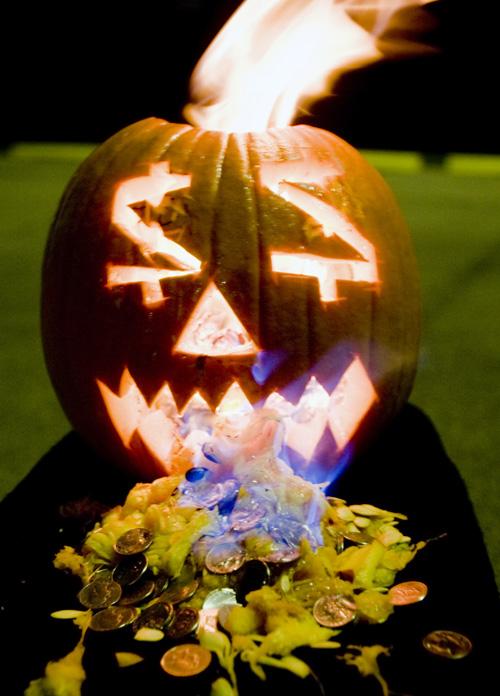Rain rots pumpkin crop
October 12, 2007
As fall sets in and Halloween approaches, varieties of pumpkins such as Magic Lanterns, Peek-a-boos, Spooktaculars and Jack-be-littles are ripe and ready to be transformed into jack-o-lanterns.
These pumpkins, among other varieties, experienced a normal growing season in central Illinois, however crops in the state’s northern and southern regions had more problems.
“We had double the amount of normal rainfall in the north in July and August,” said Bob Shoemaker, senior research specialist in food crops at the University.
Mosbah Kushad, associate professor of horticulture, said the wet spell in northern Illinois came at a key time for growing pumpkins.
“A lot of the rain came in August at a time when pumpkins are normally growing resistant to diseases,” Kushad said. “So some of the crop was lost in McHenry County and Hampshire (Kane County) because of the heavy rain.”
Get The Daily Illini in your inbox!
Kushad said too much rain makes pumpkins vulnerable to phytophtora fruit rot, a fungus that causes roots to rot, as well as other bacteria. Graham said rotting occurs when the plant’s leaf canopy does not dry out between rains.
“You don’t want it to be extremely wet,” Graham said. “If it’s constantly wet, it gets like a steam bath and it’s perfect for bacteria and fungi.”
Some farmers had between 80 and 100 percent loss of their crop, Shoemaker said.
Luckily, some northern farmers can still recoup some of their losses. Many collaborate with others around the state so they are able to buy from wholesale farmers and sell the pumpkins at retail from their farms, Shoemaker said.
“They’ll make a little bit of profit, but they’ll maintain their market presence, which is important,” he said.
While northern Illinois pumpkins suffered because of too much moisture, farmers in southern Illinois dealt with dry, hot conditions.
“I heard about the rains up north and the dry conditions down south,” said Randy Graham, co-owner of Curtis Orchard and Pumpkin Patch in Champaign. “But we’re in the middle in a belt of good pumpkin-growing conditions.”
Graham said hot spells are often a problem when growing pumpkins in Champaign. He planted two types of heat-resistant pumpkins this season: a small variety called Cannonball and a larger one called Magic Lantern.
“They’re heat resistant in the sense that they still pollinate in hot conditions, where a lot of pumpkins, when it’s 95 (degrees) just won’t pollinate,” Graham said.
The heat-resistant seeds cost between $80 and $100 per pound, compared to about $20 per pound for normal varieties. Graham said he does not mind paying more if the expensive seeds withstand the summer and produce a large crop.
“Too much rain is bad, and not enough rain is bad because there won’t be enough growth. So it’s a fine line,” said Curtis Orchard manager, Chris Curtis. “When you think of all that can cause problems, you wonder why we get such a good crop.”
Aside from heat-resistant pumpkins, the orchard also grows squash, gourds and colored pumpkins in tan, white and blue, Curtis said.
“We have a variety: regular round ones with a regular shape and weird looking ones,” Curtis said. “Because there’s a certain crowd that thinks the weirder the better.”
No matter the type of pumpkin, Kushad said consumers will be able to find plenty of options here in Central Illinois.
Curtis Orchard’s growing season went well this year, and they have maintained their prices at 36 cents a pound.
“We sell tens of thousands of pumpkins every year,” said Graham, “We’re probably the biggest distributor in the county.”
Donna Beyer and her 9-year-old son, Nikolai, both of Arrowsmith, Ill., searched the patch for a bumpy pumpkin to turn into a witch.
“You can always find the bumpy ones and the smooth ones here (at Curtis Orchard),” Donna Beyer said.







